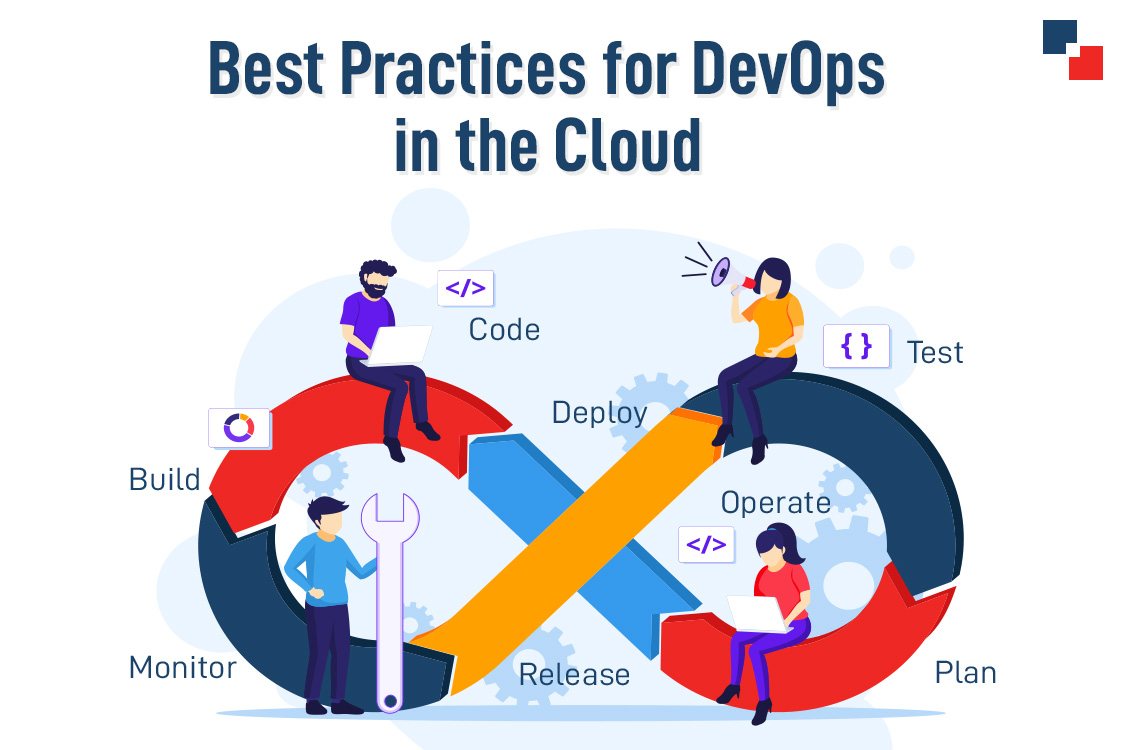In this article, we are discussing some interesting stuff about DevOps in the cloud and discuss the Best practices for DevOps using the cloud.
There are so many questions that arise in our minds related to DevOps and Cloud, Like, What is DevOps in the cloud? How does DevOps relate to working in the cloud? Does DevOps require the Cloud? Let’s clear up this confusion.
DevOps is “Development” and “Operations” which is a combination of practices and tools designed to increase an organization’s ability to deliver applications and services faster than traditional software development processes.
DevOps model, development, and operations teams work together across the entire software application life cycle, from development and test through deployment to operations.
Cloud platform offers automated provisioning and scaling to accommodate applications. The flexible nature of the cloud enables better scalability. DevOps streamlines and accelerates application releases because the event is fast and reusable.
When operating with DevOps within the Cloud, understanding the simplest practices could be difficult because both areas of technology are still fresh.
To help you better understand DevOps and Cloud Computing, we have a set of resources and therefore the best practices that you simply can follow.
Keep Security in Mind
Security matters the most in public clouds. Security should be the priority in the cloud, but it should never be ignored when it comes to DevOps tools and organizations.
If needed, take the assistance of a trusted development automation provider who can 24×7 monitor security within DevOps within the cloud. Security should be included within the “automated testing” to supervise the continual deployment procedures.
Make use of adaptable DevOps tools
Some DevOps tools can work with several Cloud. A common pattern of selection of DevOps tools by most people is using one with little resistance, especially from public Cloud providers.
If your application is deployed on several Cloud platforms (whether public or private), you’d have a broader reach in selecting an appropriate Cloud for your tasks – no limits to your choices!
Manage the Source code
Source code isn’t the sole element of an enterprise solution. Schema, user interface, access control rights, and static resources are all part of the creation process and should be managed just as diligently as source code.
Ensure that developers are making changes during a segregated environment. In a database, multiple database administrations (DBAs) can tread on each other’s changes when working in a shared environment.
Integrate Automated Performance Testing
Performance issues are hardly checked by most developers and hence its consumers find themselves experiencing and reporting such, which may be a recipe to kill a business. Avoid applications stepping into the assembly if they need a poor performance.
Automated performance testing allows for efficient performance and therefore the use of obtainable resources. It should even be aligned with accuracy and stability testing as well as existing interfaces and APIs.
Integrate Containers
Containers make applications portable and straightforward to orchestrate and manage. The best practice for DevOps within the cloud is to integrate containers into your DevOps and cloud strategy because they’re portable, easily managed, and orchestrated.
Allow only Selected Applications to the cloud
You need to prioritize which applications you would like to migrate first which will add more value to your business. Analyze the applications to seek out what proportion of time and resources you’d need for the migration process.
The most sensible approach will be to prioritize the applications depending on the need, use, and services to know what applications need to be migrated first.
Automate Configuration
Make sure that you simply make testing for configuration a part of your verification process. Certain platforms have powerful permission tests, and powerful profiles, that allow user access only to the right information.
Logging and Monitoring
Logging and Monitoring is the most underrated practice that ensures whether Cloud DevOps has been effective or not is monitoring and logging.
DevOps may be a guaranteed approach to improving software and application development, you would like to make sure that they’re being tested to keep the method streamlined.
Conclusion
DevOps features a powerful collection of practices and principles that will alleviate the challenges that are prevalent in cloud computing. If you’re an IT expert who has made mistakes caused by avoidable reasons. The above best practices will assist you in realizing the capabilities and power of cloud-based computing.




